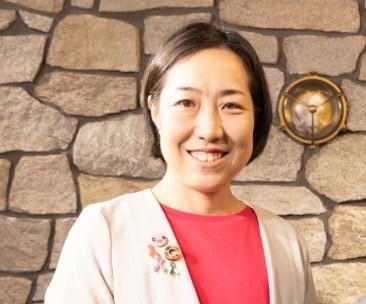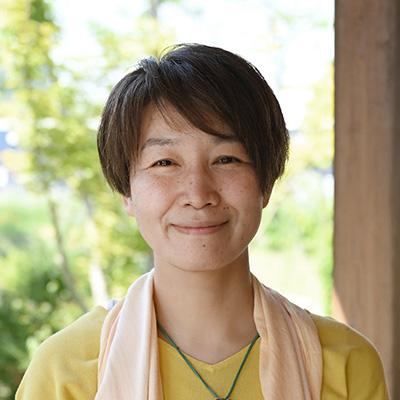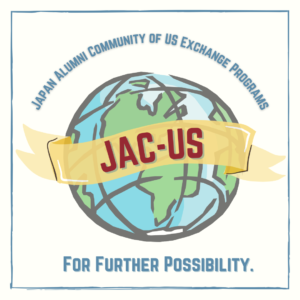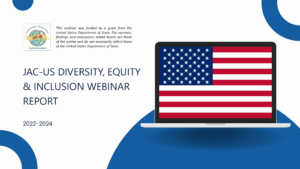[Report] JAC-US Diversity, Equity, and Inclusion Webinar #4 Summary: Health & Diverse Working Styles
SUMMARY
The webinar featured insights from Yuki Akutsu, a breast cancer survivor, and Akiko Kimura, a cancer support specialist at MAGGIE'S TOKYO. Yuki shared her experience of being diagnosed with bilateral breast cancer, undergoing a mastectomy, and continuing her career while facing societal stigma and workplace bias. She emphasized the importance of open communication with employers and educating society to dispel misconceptions about cancer.
Akiko discussed the role of MAGGIE'S TOKYO in providing a supportive, homelike environment for cancer patients and their families. She highlighted the challenges patients face in communicating with employers and finding reliable information.
During the Q&A session, both speakers addressed concerns about balancing work and treatment, educating without stigmatizing, understanding cancer, providing support, and choosing the right doctors. They stressed the need for accurate information, personalized treatment plans, and maintaining normalcy and open communication in supporting cancer patients. The webinar concluded with a call for better education and understanding to foster a more supportive and inclusive society for cancer patients and their families.
SPEAKERS

Yuki Akutsu is a breast cancer survivor who has continued her career despite her diagnosis. Five years ago, she was diagnosed with bilateral breast cancer, which led to a mastectomy. She returned to work within a month, though she continued her treatment with hormonal therapy. Akutsu highlighted the challenges faced by cancer patients, including bias in the workplace and the societal stigma that makes discussing cancer difficult. She advocates for a society where talking about cancer is not regarded as a “taboo.”

Akiko Kimura is a cancer support specialist and a nurse at MAGGIE'S TOKYO, an international network providing a homely environment for cancer patients and their family and friends. MAGGIE'S TOKYO offers a "second home" that is neither a hospital nor their own home—a cozy, homelike environment where they can “feel human again”, rather than just a patient, even while dealing with their illness. It provides anonymous, drop-in support, and connects patients with professionals like nurses and psychologists. The services are free, supported by charity.
Q&A SESSION
Q1: What kind of concerns and difficulties did you face in balancing work and life (including treatment)?
Yuki:
I initially struggled to inform my company about my hospitalization under the influence of “unconscious bias.” I now believe it’s crucial to communicate openly with employers to avoid misunderstandings. But there is a strong unconscious bias in society that equates cancer with being unable to survive. The media, particularly television, bears a significant responsibility for perpetuating this bias. Teachers do not want to use the term “cancer” even when educating students about cancer.
Akiko:
Many cancer patients worry about their job security and how to convey the uncertain nature of their treatment to employers. The lack of clear treatment endpoints makes it challenging to plan and communicate effectively.
Q2: How do you educate about cancer without using the word "cancer" at schools?
Yuki:
I try to use the term "malignant tumor" instead of "cancer" to avoid stigma. Educating people on the cellular level helps them understand that cancer isn’t caused by something they did.
Akiko:
Fear of the unknown plays a significant role in the stigma. Proper education is essential to combat this fear.
Q3: In counseling, isn't it often the case that cancer patients themselves don't fully understand cancer?
Akiko:
Patients often rely on outdated or incorrect information, which can increase their anxiety. Finding accurate, individualized information is crucial.
Yuki:
With the advent of personalized medicine, understanding a specific treatment plan for each is vital. In the future, we will enter an era of genetic-level personalization. Without accurate information and knowledge, it will be impossible to make informed decisions.
Q4: What kind of support and encouragement should we give to someone close to us who has cancer or is post-surgery?
Yuki:
My experience of being welcomed back to work as if nothing had happened helped me. Also my boss asking me what I wanted to do with my situation helped me feel supported. Open communication is the key.
Akiko:
Treating cancer patients normally and maintaining regular communication is essential. Also, if the patients themselves can ask for specific help when needed, it is easier for others around them to offer necessary support.
Q5: How can people access appropriate resources, and what should they do if they can't find the right support like MAGGIE'S TOKYO?
Akiko:
While having choices is good, there could be an overwhelming amount of information in today’s society. Patients should seek advice from their primary doctors and utilize available support systems like cancer information services and local support centers.
Q6: How should we approach the concept of "standard treatment"?
Yuki:
"Standard treatment" should be understood as the best current option based on evidence. Proper communication from doctors is also important.
Akiko:
Expensive treatments aren’t always better. The focus should be on evidence-based, individually customized practices.
Q7: What are some tips or advice for choosing the right doctor?
Akiko:
There is no single definition of a "good doctor." Ultimately, the most important factor is the compatibility between the patient and the doctor. It is crucial to ensure that the proposed a treatment plan is acceptable to the patient and that there is an environment where the patient feels comfortable discussing their concerns with the doctor.
Q8: As a family member of a cancer patient, what is important when supporting them?
Yuki:
In my case, it was helpful that my husband generally watched over me and let me do things my way, instead of stepping in to help with things I could manage myself. Just like the patient, family members also bear a certain amount of emotional burden. It is crucial to maintain good communication to find a balance and support each other effectively.
Akiko:
Caregivers must manage their own pace and stress levels to provide long-term support. Understanding the impact on family roles and work life is important for creating a supportive environment.


